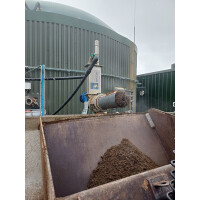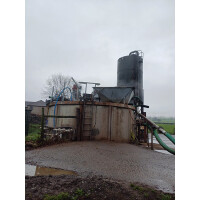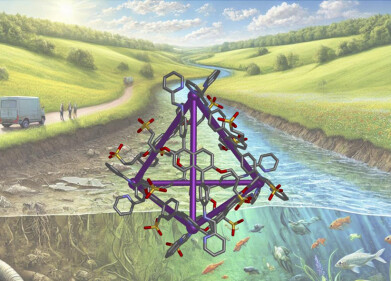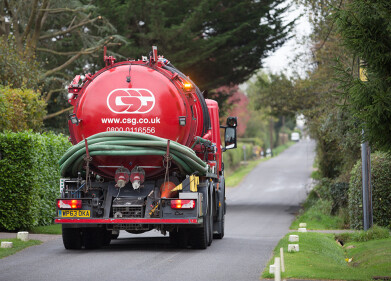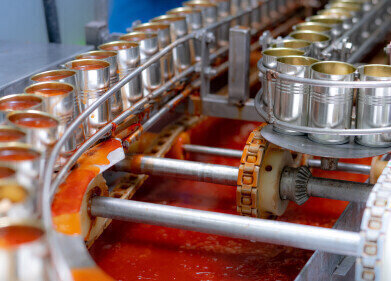-
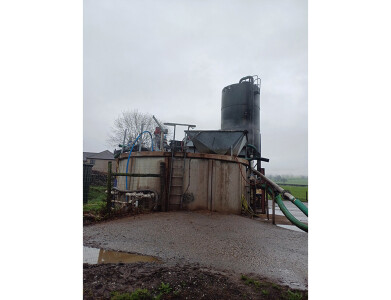 he reception tank at Hendwr benefits from a Landia chopper pump and mixer that blends feedstock into a very homogenous mix.
he reception tank at Hendwr benefits from a Landia chopper pump and mixer that blends feedstock into a very homogenous mix. -
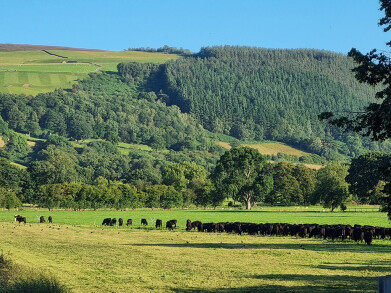 Hendwr Farm spans almost 1000 acres of lush green grazing fields in North Wales.
Hendwr Farm spans almost 1000 acres of lush green grazing fields in North Wales.
Wastewater treatment
The hills are alive with the sound of sustainable innovation
Jan 14 2025
There’s an old saying: “Don’t judge a book by its cover.” The same could be said for the unassuming tank at Hendwr Farm’s biogas plant. Partly submerged, housing a chopper pump and a mixer, it’s not exactly what you’d call a showstopper. Yet, this humble equipment plays a crucial role in powering a sustainable energy revolution at this North Wales farm—and no one understands that more than Phil Hughes, the man behind it.
Hendwr Farm, nestled in the hills of North Wales, is home to a traditional farming operation that produces lamb and beef. But it’s also a shining example of how innovation and sustainability can go hand in hand. A farm that has long been a staple of Welsh agriculture is now at the forefront of a pioneering shift towards renewable energy, circular systems, and resource efficiency.
The farm’s history stretches back to 1902, when it was purchased by Phil’s great-grandfather, Cadwalader Jones Hughes. But it’s Phil’s father, John Hughes, who first introduced the idea of diversification in the late 1960s by offering camping and later developing the Hendwr Caravan Holiday Park—a thriving business that continues to generate income today.
While the park's growth meant higher energy demands, Phil was determined to minimise the farm's reliance on external power. So, in 2011, he took a major step by installing ground-mounted solar panels—a move that would set the stage for the farm's next leap toward sustainability.
“We wanted to limit our farm’s reliance on outside inputs,” says Phil. “When we saw the benefits of solar energy, we started exploring other ways to expand our renewable energy efforts.”
Around the same time, a new plan began to take shape. With 120 Angus calves producing a modest amount of manure, Phil saw an opportunity to combine this organic waste with other farm byproducts—corn, chaff, and even chicken litter—into a biogas plant. This would not only generate renewable energy, but also produce much-needed fertiliser, sparing the farm from the rising costs of commercial fertilisers.
"Chicken litter turned out to be the key ingredient," Phil explains. "It’s an excellent feedstock for the biogas process and works far more efficiently than we initially imagined."
A financial case for renewable energy
Looking back, Phil admits that building the biogas plant in 2015 was far more challenging than they had anticipated. "We were blissfully ignorant," he chuckles. "It was a thousand times harder than we thought. But when you compare the value of farm produce with the value of anaerobic digestion (AD), the financial case for renewable energy is clear."
Phil goes on to explain that food is often undervalued in today's economy. Farmers are incentivised to produce as cheaply as possible, which doesn’t take into account the environmental costs or the long-term health of the land. The biogas plant, with its 200kW engine and digester perfectly sized for the farm, has become a crucial part of the business’s financial model.
To keep things running at peak efficiency, the Hughes family has become obsessed with maintenance. "We have almost 100 control signals on our biogas process," says Phil. "If something isn’t right, the alarm goes off—typically in the middle of the night—and you have to deal with it immediately if you want to keep things running smoothly."
The power of good mixing and smart technology
At the core of the plant’s success is the proper mixing and homogenisation of feedstocks. Hendwr invested in a chopper pump and mixer from Landia, which have proven to be incredibly effective in breaking down materials for digestion. However, even the most reliable equipment has its limits. After six years of continuous use, the original cast-iron pump eventually gave out due to the harsh acidic environment. But Landia, committed to supporting their clients, quickly provided a temporary replacement until a new stainless-steel pump could be installed.
“The Landia Chopper Pump is an essential part of our operation,” says Phil. “It’s very effective at reducing particle sizes and preparing the liquid for the next stage of processing. It’s a small part of the system, but it plays a critical role in our plant’s efficiency.”
During the pandemic lockdown, the farm shifted its focus to a new innovation: dewatering digestate and slurry to create dry, stackable solids and clean, dischargeable water. This new process led to the creation of Ekogea, a product that maximises biogas output, reduces waste digestate by up to 80%, and helps treat wastewater to meet Environment Agency standards.
“We’ve learned to concentrate solids efficiently,” says Phil. “For us, as hill farmers, this means we can safely spread digestate on higher, steeper land where slurry tankers would be too dangerous. It’s allowed us to increase productivity while improving our land’s health and reducing nitrogen loss to the atmosphere.”
A more efficient, sustainable farm
The farm’s ability to handle digestate has also drastically reduced its need for external water sources. By reusing water to wet the chicken litter at the start of the biogas process, the farm has cut costs and streamlined operations.
“Covering our lagoon was one of the best decisions we made,” Phil reflects. “We have plenty of rain here in North Wales, but dewatering has allowed us to transport solids more easily and safely. This technology could also be adapted for industrial use, where it could help reduce water treatment costs.”
Phil’s commitment to sustainability goes beyond just farming practices. The dewatering system has opened new avenues for waste management, allowing Hendwr to not only reduce its environmental impact but also turn waste into valuable resources—natural fertilisers and treated wastewater that can be safely returned to watercourses.
The importance of strong partnerships
Phil is quick to praise the role of his suppliers in helping the farm maintain its high standards. "Good mixing, effective pumping, and reliable equipment are all crucial to the success of our biogas process. Landia has been fantastic—whenever they come to do maintenance, they bring a wealth of knowledge and provide exceptional service. They know us by name and understand the unique challenges we face."
For Phil Hughes, Hendwr Farm is more than just a farm; it’s a living example of how sustainable innovation can thrive in the most unexpected places. By taking a circular approach to energy and waste, this small farm in North Wales is not only ensuring its own future but setting a powerful example for others to follow.
As Phil says: "Sustainability isn’t just about doing what’s right for the planet—it’s also about making smart, profitable decisions that work for the farm and the wider community."
Events
Apr 21 2025 Shanghai, China
May 11 2025 Vienna, Austria
May 18 2025 Algiers, Algeria
23rd International Water Management Exhibition
May 20 2025 Prague, Czech Republic
Singapore International Water Week Spotlight 2025
Jun 23 2025 Singapore
-with-Paul-Davies-from-Landia.[1].jpg)
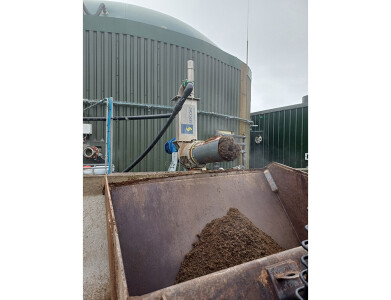
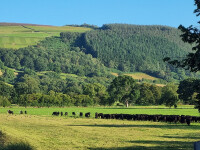
-with-Paul-Davies-from-Landia.[1].jpg)
